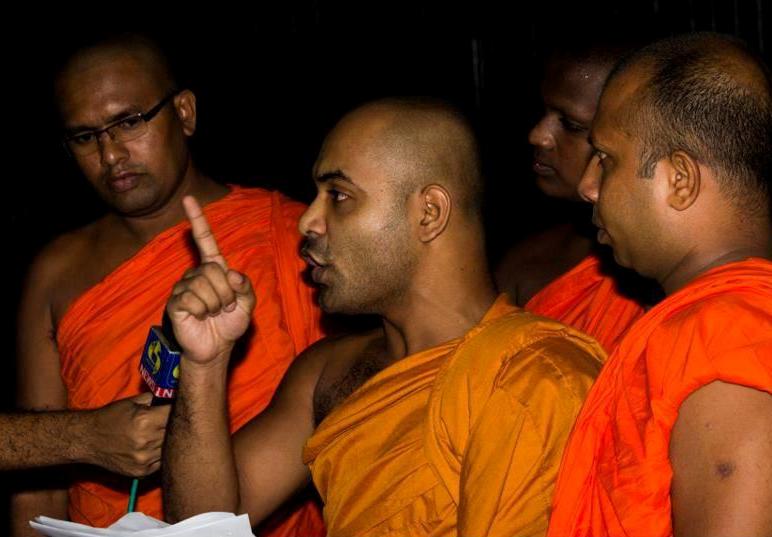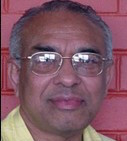A Brief Colonial History Of Ceylon(SriLanka)
Sri Lanka: One Island Two Nations
A Brief Colonial History Of Ceylon(SriLanka)
Sri Lanka: One Island Two Nations
(Full Story)
Search This Blog
Back to 500BC.
==========================
Thiranjala Weerasinghe sj.- One Island Two Nations
?????????????????????????????????????????????????Friday, April 13, 2018
The Sangha Needs Cleansing

 When
religion is politicised religious leaders lose their spiritual charisma
and religious institutions become partisan players among competing
political forces. This has been the sad story of Buddhism and its apex
institution, Sangha, ever since SWRD began to exploit that religion and
its monks to win his political battles. By the time he realised that by
dragging Buddhism and the Sangha into political arena he had become
captive to the demands of Sangha-backed reactionary forces within his
cabinet could not turn his back on them. The moment he tried to resist
their pressure he paid with his life. Regrettably,
his successors did not learn any lesson from this saga except to
continue politicising Buddhism and the Buddhist clergy to achieve and
retain political power. Even
Colvin R. de Silva, a Trotskyite and author of the 1972 constitution,
could not escape leaning towards religion although he regretted later.
It was his constitution, which made Buddhism the state religion. From then onwards the Sangha became a permanent player in Sri Lankan party politics.
When
religion is politicised religious leaders lose their spiritual charisma
and religious institutions become partisan players among competing
political forces. This has been the sad story of Buddhism and its apex
institution, Sangha, ever since SWRD began to exploit that religion and
its monks to win his political battles. By the time he realised that by
dragging Buddhism and the Sangha into political arena he had become
captive to the demands of Sangha-backed reactionary forces within his
cabinet could not turn his back on them. The moment he tried to resist
their pressure he paid with his life. Regrettably,
his successors did not learn any lesson from this saga except to
continue politicising Buddhism and the Buddhist clergy to achieve and
retain political power. Even
Colvin R. de Silva, a Trotskyite and author of the 1972 constitution,
could not escape leaning towards religion although he regretted later.
It was his constitution, which made Buddhism the state religion. From then onwards the Sangha became a permanent player in Sri Lankan party politics.
Once
the top echelons of the hierocracy started tasting the joys of
political influence and power, it became only a matter of time before
the demonstration effect percolated downwards to infect the lower ranks.
Young members of the Sangha, with less commitment to monastic life and
mort attracted by worldly pleasures, actively entered into the political
arena. Soon they appeared on party political platforms canvassing on
behalf of contesting candidates. They, in their saffron robes,
participated, led and directed unruly and violent political
demonstrations as happened in Aluthgama in 2014 and Digana in
2018. Contravening all Buddhist canons, they even justified violence on
nationalistic grounds. At least one or two of them have even entered
the country’s legislature as peoples’ representatives. There is nothing
to stop them in the near future from holding cabinet positions. They
will at least have a legitimate claim over the Ministry of Buddha
Sasana. Is this the legitimate world of the Sangha? While Prince
Siddhartha renounced all palatial comforts and worldly pleasures to
attain Enlightenment, why are some of his disciples renouncing the
enlightened path and embracing worldly comforts?
Politics
is the art of the possible. The rough and tumble of politics allows
room for corruption, nepotism, deception and many other forms of
unethical behaviour. The term honest politician is an oxymoron. Sri
Lankan politics, like in neighbouring countries, is notoriously corrupt.
What is the guarantee that members of the Sangha who enter politics
will not succumb to these evils? If they give in to such temptations,
what sort of an image they create about the Sangha among Buddhist
worshippers both at home and abroad? In the current political and ethnic
turmoil the behaviour of a few monks have seriously damaged the
reputation of this vital institution. It is time that the Sangha devices
some internal mechanism to cleanse itself of the rotten apples. The
need is there, but who should do it?


